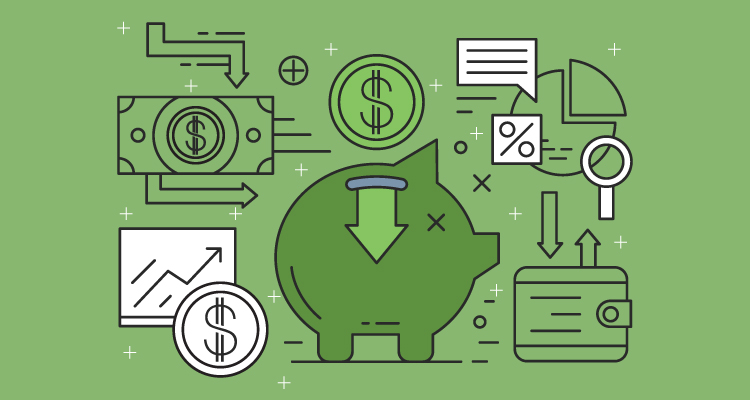It’s easy to see why entrepreneurs are bonding with alternative lenders. What’s not so easy to see is why they’re leaving bankers out of the loop. However, with renewed trust in each other, both institutions are finding mutual benefits. What’s more — the B and B called “Business and Bankers” is finding a renewed comeback.
Say you’re a small business owner feeling the squeeze. You could turn to a traditional bank that requires loan applicants to go through a rigorous review process for a 20 percent chance of approval. Or you could apply online with a peer-to-peer firm that approves more than 60 percent of applications and receive a decision in minutes.
In those terms — it seems obvious why the American Bankers Association predicts non-bank lending will grow sixfold between 2015 and 2020. But there are plenty of reasons entrepreneurs should still put stock in their small business banker.
Table of Contents
ToggleMore Than Money Small Businesses Need Their Bankers
As peer-to-peer lending grows and new bank lending declines across the developed world, it’s worth considering what entrepreneurs lose beyond better interest rates when they give bankers the boot:
-
A high-dollar business planner.
When an entrepreneur asks for a loan — the first thing a bank lender looks for is a plan. That plan needs to include a market analysis backed by data — showing a need for the product or service. The plan will consist of a summary of the entrepreneur’s and key employees’ experience in the field; a survey of potential challenges — not to mention strategies for avoiding or overcoming them. Better plans have projections of first-day and year-end balances — as well as the assumptions made in building them — along with and an explanation of how the money requested might be used.
If that sounds like a tall order for a first-time entrepreneur, it is. Most small business bankers realize their clients aren’t finance experts. While they can’t and won’t do all the work — the experienced banker will review plans and provide advice about cash flow projections, marketing plans, and more. Because banks primarily offer debt financing rather than investment dollars, they can be trusted to give advice without taking the reins.
-
A full accounting of funding options.
Bankers know small businesses have a slew of options for startup capital, some of which entrepreneurs themselves aren’t aware of. According to the U.S. Small Business Administration, 57 percent of small business owners turn to their personal savings for startup capital. About eight percent use a personal credit card, another eight percent use a bank loan, six percent rely on other personal assets, three percent tap their home equity, and a slim two percent use a business credit card.
Bankers are quick to point out that there’s not necessarily a “wrong” funding source. Rather, certain funding sources are more or less appropriate for a startup’s situation. A banker may counsel someone with multiple homes to take out a mortgage on one that isn’t the primary residence. Someone with excellent credit may be better off tapping an existing line of credit than cashing out a personal life savings.
-
A teller of industry trends.
Just as an entrepreneur knows what’s going on in his or her space, bankers keep abreast of financial industry trends. Bankers know, for example, that the Federal Reserve expects to raise interest rates three or more times in 2019 and at least once in 2020. As a result, they may counsel entrepreneurs trying to decide between a fixed- and variable-rate loan that it’s in their best interest to lock in a lower rate now.
Particularly strong entrepreneur-banker relationships are built on industry overlap. Joe Fuld, Entrepreneurs’ Organization member and president of political advocacy agency The Campaign Workshop, explains in a recent Inc. article that he switched banks because his existing banker didn’t understand Fuld’s industry. “My then-banker worked mainly in the government contracting space. Not only was this not my industry, but the metrics used to evaluate an advertising agency versus a government contracting business are as different as night and day.”
-
A wealth of professional connections.
The dirty truth of entrepreneurship is that more small businesses fail due to incompetence than any other reason. While incompetence describes a broad range of blunders, most company-ending mistakes can be avoided or addressed by turning to one of four experts. These include: a banker, an attorney, an accountant, or an insurance agent.
How can an entrepreneur get acquainted with one of the latter three experts? By asking his or her banker for a referral. Those experts use business banking services themselves, giving bankers a bird’s-eye view of their specialties. A banker may know, for example, whether a nearby corporate attorney who claims to be a generalist typically works with startups, mid-market firms, or Fortune 500 companies.
Although alternative lending arrangements have exploded in popularity, entrepreneurs should remember they’re no substitute for a traditional banking relationship. A peer-to-peer lender that algorithmically approves applications won’t recommend local attorneys or coach applicants on their business plans. Whether they realize it or not; that sort of advice is worth far more to small business owners than online convenience or speedy approval.













